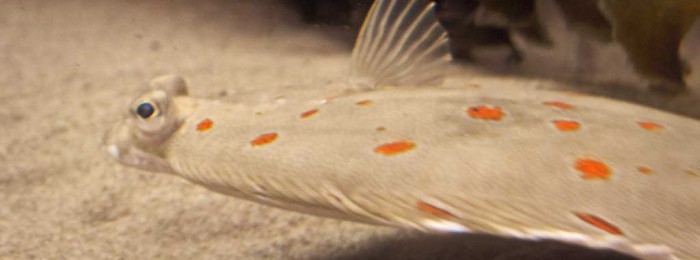01843 585310
info@kentandessex-ifca.gov.uk

01843 585310
info@kentandessex-ifca.gov.uk

Date updated: January 2014
Fishery location: Across the district
Fishing Gear: Recreational Sea Angling, nets, trawls
Season: all year, more seen at the end the winter
Primary Management Tool: None
Lead Regulator: None
Quota: non-quota species
Plaice are an important part of the benthic ecosystem which is affected by the methods of fishing used to catch them. The increase fishing pressure on this species due to a mixed beam trawling fishery for sole and plaice with 80 mm has led to increased mortality of undersized plaice which is thought may result in an age and size of maturity reduction in plaice and other benthic species.
Plaice is most commonly a right eyed flatfish with distinctive bony tubercles behind the eyes. Plaice can vary considerably in colouration depending on the location and substrate they live on but are generally brown-grey on the topside [BH1] with varying shades of orange spots[BH2] which may or may not always be visible. This variability in colouration camouflages plaice against the seabed of sand, gravel and mud which they are usually found living over. They are commonly found in coastal shallow waters down to 100 m or more, plaice feed on bottom living invertebrates, including molluscs, polychaete worms and small fish. Females spawn in late winter producing planktonic larvae which remain in the water column during larval stages.
© Kent & Essex IFCA 2026 - All Rights Reserved | Privacy Policy
| Website by 